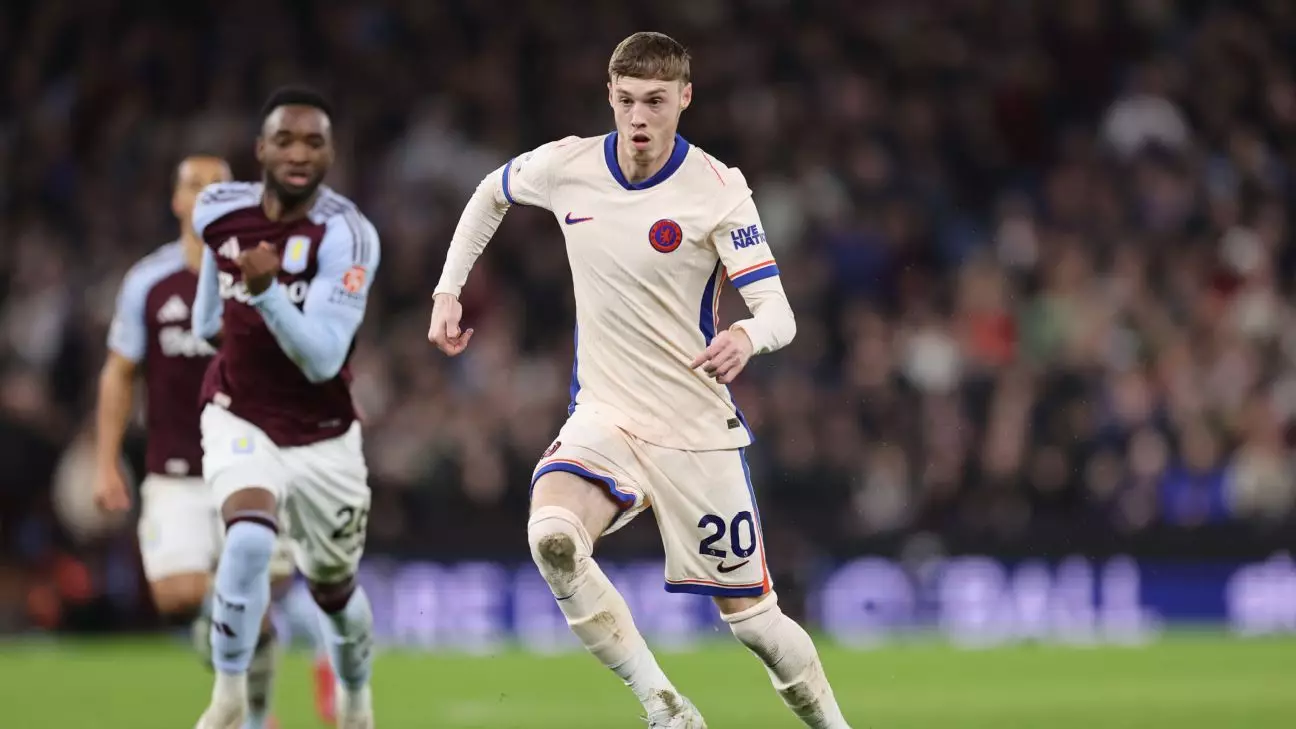In the high-stakes arena of the Premier League, every team’s performance is scrutinized, and Chelsea finds itself under intense observation. With their disappointing recent showing against Aston Villa, which resulted in a 2-1 loss, the club has slipped to seventh place in the league. Manager Enzo Maresca has brought attention to one significant issue: the over-reliance on Cole Palmer, whose form has waned in recent games. This article will delve into the implications of this dependency, analyze the dynamics of the team’s performance, and discuss the paths forward for both the club and the young midfielder.
The Pressure on Cole Palmer
Cole Palmer was once the beacon of hope for Chelsea supporters, showcasing promise with a tally of 14 goals and six assists in the first half of the season. However, as the team has stumbled, so too has Palmer’s form. With six consecutive matches without scoring and missed opportunities in pivotal games, criticism has followed him like a shadow. Maresca’s defense of Palmer, emphasizing his human side and recognizing the inevitable fluctuations in any player’s performance, is commendable. However, this defense underscores a broader concern: when a single player becomes synonymous with a team’s offensive strategy, it creates a precarious situation for the entire squad.
Maresca expressed that the team’s reliance on Palmer needs to be addressed. In his view, football is a collective endeavor, and depending heavily on one talent—despite their skill—can lead to detrimental effects on morale and performance. In competitive leagues, such as the Premier League, teams need varied contributions to succeed. Chelsea must strive for balance, fostering contributions from all players to support one another.
The psychological toll that arises from being the focal point of a team’s offense cannot be overlooked. Palmer’s visible frustration during games—seen vividly at Villa Park—highlights the pressure he is under. While Maresca reassures that this frustration isn’t stemming from teammate relationships but is instead rooted in the disappointment of results, one must wonder if the expectations have become burdensome. Players in such circumstances can struggle with their confidence, which can perpetuate a cycle of missed opportunities and heightened pressure.
Moreover, the notion that Palmer’s body language reflects a broader concern within the team raises questions about the overall spirit in the squad. Are they supporting each other through rough patches, or is the atmosphere one of blame and frustration? Maresca’s acknowledgment of these factors is crucial, but addressing them will require thoughtful interventions from the coaching staff to foster a more cohesive unit.
As the team prepares for an upcoming match against Southampton, who sit at the bottom of the league, it presents a chance for a much-needed turnaround. Maresca’s emphasis on working hard and continuing to push Palmer will be essential, but it also extends to the rest of the squad. Building up other attacking players must be prioritized so that they can alleviate the pressure on Palmer. The synergy in a team often turns potential into performance, and Chelsea would greatly benefit from cultivating its depth.
The manager’s commitment to maintain Filip Jørgensen in goal suggests an understanding of resilience and stability amid adversity. When mistakes abound, it is vital for the team’s mental framework to not be shaken by changes; such continuity can foster a more grounded performance. Treating errors as learning opportunities rather than grounds for immediate replacement could bolster a team’s overall confidence.
Chelsea’s current situation represents a significant challenge but also an opportunity for growth. By recognizing and addressing their over-reliance on Cole Palmer, the team can work towards a more equitable distribution of responsibilities. The focus not only needs to rest on Palmer but on creating an environment where multiple players can step up, share the pressure, and mobilize the squad to achieve collective goals.
As the season progresses, resilience will be key. Chelsea must not only support Palmer through his slump but also enhance their collective performance to climb the league standings. The path back to glory demands that the entire team performs, not just their singular star. Such a holistic approach may yet restore Chelsea’s competitive edge and revive Palmer’s promising trajectory.

